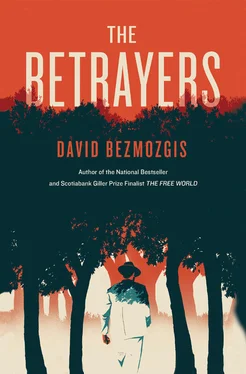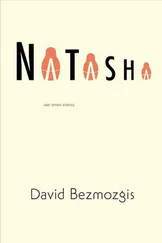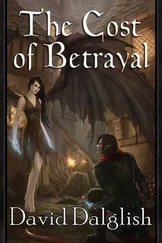— Very much, Leora said.
— Good, I’ll tell you, Svetlana said, parrying Leora’s sarcasm. His salary was one hundred and fifty dollars a month. They also gave him a police car and ten dollars a month for gas. Ten dollars for gas was good for one day. The rest had to come from his pocket. The cost of notebooks and pens to write the reports — his pocket. Money to buy drugs from the criminals so as to catch them — his pocket. Now, how did they expect a person to survive like this? Could a policeman do his job faithfully? Either a person becomes corrupt or he abandons this job. Most of them become corrupt. Ours said he didn’t have the constitution for it. It didn’t agree with him to work in such an environment. So he resigned. Is it better for his constitution to live without regular work in Simferopol?
Svetlana looked pointedly at Leora, as if she expected her rebuttal.
— I don’t know what you want me to say.
— There’s nothing to say, Svetlana declared. Only one time in my life did I allow myself to feel hopeful in this country, and that was when I met Chaim. I was twenty years old and I lived in a village that could fit inside Yalta fifty times over. He appeared at the regional dental clinic. I couldn’t imagine what would have brought him to such a provincial place, but it was Soviet times and a person was like a pebble in the hand of the regime, tossed here or there. Or if someone wanted to shed his old life, there were a million villages from Kamchatka to Baku. All I knew of my husband was that he had been born in Chernovets, spent the war in Kazakhstan, and later lived in Moscow. The man I married was named Vladimir Tarasov. His passport said his nationality was Russian. We were married in 1979. It was only ten years later, when the Soviet Union was on its last legs, that I learned the truth. By this time we had our two daughters, and life in the village was becoming intolerable. People were being paid their salaries in vodka. A truck would pull up and they would hand out bottles. Can you imagine? Not just to the laborers but also to the schoolteachers. And it was only when I insisted that we leave the village that he told me his secret. He wept.
— Not from contrition, I suppose.
— It is easy to judge, Svetlana said. But he was a man who had hidden his true self for over a decade. From the people closest to him. From his very children. Do you think it is easy?
— It depends what you are hiding. All husbands hide things from their wives, and all parents hide things from their children. I’m surprised he chose to confess such a thing at all.
— Such a thing? It was his essence.
— That he was a KGB informant?
— That he was a Jew.
— He wouldn’t have been the first to conceal that inconvenient fact either. Unless it was no longer inconvenient. A lot of people discovered their Jewish ancestry at this time. You can see them on Sundays at the Church of the Holy Sepulchre.
— Have you seen him at the Church of the Holy Sepulchre? Have you seen either of us? Though, I won’t lie, I would dearly love to go. I would like to go to the Church of the Holy Sepulchre almost as much as he would like to go to the Wailing Wall.
— Very well. Go. Who’s stopping you? It’s a free country. Jerusalem is full of pilgrims. Not a few of them Russians. At the Jaffa Gate they are disgorged by the busload. Every third word in the souk is Russian. Even the Arab storekeepers speak it now.
— Very nice, but it isn’t about being a pilgrim.
— No? Then what is it about?
— You heard him. He’s a Zionist. He wants to live in Israel.
— Fine. So go. B’hatzlacha. I’m not going to stop you. Neither is Baruch, I suspect.
— But you know we cannot do that. After what my husband did, he will never be accepted. Nor will our daughters.
— I don’t know anything of the sort. You should see some of the people we’ve accepted. The Law of Return doesn’t discriminate. Or not enough. Even against gangsters and traitors.
— I am not talking about legally.
— No? Then how?
— Spiritually. How can a person live in a country where his name is despised?
— Your husband should have asked himself that question forty years ago.
— Believe me, my dear, he asked it.
— And apparently answered it.
Leora watched Svetlana run a hand across her forehead, as in frustration and sorrow.
— Oh, girl, how easy it is to sit in judgment when one doesn’t hold all the facts.
And just when Leora had thought she couldn’t feel more distaste for this woman, with her unctuous, melodramatic, wheedling tone. Leora stole another glance down the hallway in hopes that Baruch would emerge. How much more could she possibly say to this woman? Were they to have an esoteric conversation about justice? Who is the real victim? Who is the real perpetrator? Who gets to sit in judgment? Who? Everyone. And only a child or a simpleton bemoans it. To sit in judgment without all the facts? Who ever sat in judgment with all the facts? Facts were imposed by those who had the power to impose them. Today, it suited the newspapers to depict her as a wide-eyed, impressionable fawn. Tomorrow, different facts would paint her as a sly, self-seeking tart. And later still, depending on the way the winds were blowing, she could find herself on a soundstage in intimate conversation with a television host, with the furniture, the coffee mugs, and the pretensions of compassion and sincerity. But neither in that setting nor in this kitchen could Leora imagine speaking candidly about herself and Baruch. None of them deserved to hear it. The world was full of jackals; they ravaged your life, and there was little you could keep from them except a few small tokens of introspection:
Her earliest girlhood in the Moscow apartment. Returning in tears from kindergarten and the playground to the firm inculcations of her father. Never be ashamed. Hold your head high. You are the daughter of a proud and ancient people.
Her parents’ gallery of heroes, some of whom passed through their doors, others imprisoned, their photographs cut from newspapers and kept in a scrapbook. Baruch’s photograph among them, given pride of place. Though by the time she was old enough to comprehend, he had gained his release. Different photos depicted this triumph. The small rumpled man with the mischievous grin saluting the honor guard at Ben Gurion Airport. Listening as the prime minister bent close to speak into his ear. Carried aloft on the shoulders of an exultant crowd. Facing a bank of lights and microphones, holding the hand of the pretty, patient wife.
The scrapbook and the walnut armoire in which it was kept went with them to Petah Tikva. But in Israel there was no longer a need for the pictures. The Soviet foe had been vanquished, that battle had been won. Replaced by the new battle — to carve out a life in the Promised Land. After school, alone in the apartment, awaiting her parents’ return, she sometimes paged through the book, whose radiance was slowest to dim for a child.
The anniversary of Jerusalem Day, attending with her parents a gathering of former refuseniks in Ben Shemen Forest. The picnic tables under the pines. The flags strung between the tree trunks. The old activists, gone gray, but their energy undiminished. Like her parents, they came with children, grandchildren. For most, the anniversary was coincident with the anniversary of their national revival. In a manner of speaking, the Israeli paratroopers who had liberated Jerusalem had also liberated them. Here she had met Baruch for the first time. A microphone, an electric keyboard, and an amplifier were plugged into the battery of a Volkswagen. Baruch stood at the keyboard and, with an accordionist and her own father on guitar, provided accompaniment for a rendition of “Kachol Velavan.” Afterward, her father introduced her. She was twenty-two, in her final year of university. A serious girl. A serious student, her father said proudly. I can see, Baruch teased and then asked about her plans. I’m interested in politics, she found the courage to say. You’ve raised an activist, Yitzhak, Baruch said. There are worse things, her father replied. Not according to my daughter! countered Baruch with a grin.
Читать дальше












